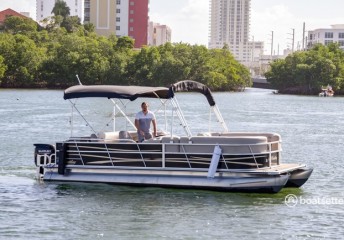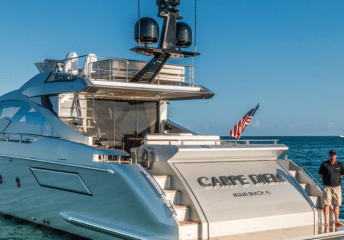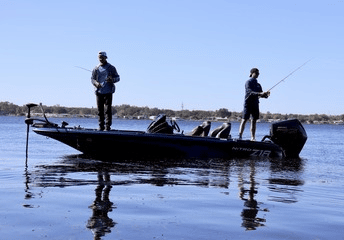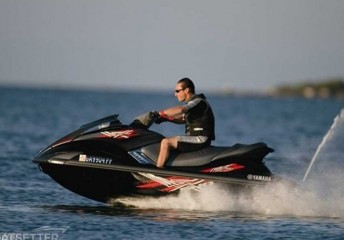Weather Events, Natural Conditions, and Extenuating Circumstances Policy
We encourage renters, owners, and captains to stay connected in the case a weather event affects your booking. Here at Boatsetter, your safety is our number one priority. Our team regularly monitors marine forecasts across the globe and distributes weather alerts and emergency communications as necessary.
The information below covers weather-related phenomenons and natural disasters, as well as our extenuating circumstances policy. You’ll also find general information on different weather events that could impact boat trips and answers to the most frequently asked questions on weather events affecting your bookings.
We strongly encourage both renters and boat owners to check with local emergency management authorities for the most up-to-date information on the weather conditions that impact you and your booking(s).
Keep in mind our Extenuating Circumstances Policy
Extenuating circumstances can be defined as unexpected live events such as the death of a close relative, political unrest, or natural disaster that renders the booking as a less serious commitment. Make sure to review our Extenuating Circumstances Policy to understand how cancellation is affected by such events.
Helpful content relevant to weather events and natural conditions
You can always turn to Boatsetter’s boating resources for content on matters such as general guidance on boat safety, boating guides, boat ownership tips, and other. We’re committed to keeping you safe so make sure to stay connected with Boatsetter to receive weather updates that may affect your boat trip from us.
We strongly recommend also connecting with your local emergency management authorities and checking with them for the most up-to-date information on a current weather event.
- Hurricane Preparedness Checklist for Boaters
- 5 Things You Need to Know When the Weather Turns Bad on Board
- Top 10 Best Marine Weather Apps for Boaters
- What Information Should Be Included on a Float Plan?
Frequently asked questions for boat owners
We strongly advise checking email and your inbox on the Boatsetter app regularly in the case of a weather event. If you wish to re-schedule the booking, make sure to reach out to your renters before making any changes to the booking.
Please be sure to answer all boat-related or trip-related questions the renter may have in a professional, timely manner. For all questions regarding the weather event, we strongly recommend you direct them to the local emergency management authorities for more information.
For captained-bookings, be sure to check in with the captain about the weather event prior to the booking. If you plan on making changes to an approved booking, make sure to reach out to the captain before as well.
Below we cover the most relevant questions to your booking(s) during a weather event:
If my renter cancels, will I be penalized?
If the renter cancels the booking as a result of the storm there will be no impact on an owners search rank, response rate, or profile.
If I cancel the booking as an owner, will I be penalized?
If a booking is canceled as a result of the storm there will be no impact or penalty on an owners search rank, response rate, or profile.
If the trip is canceled, when will the renter receive a refund?
Refunds are issued immediately once a trip is canceled, however it typically takes 5-10 business days for a refund to credit to a renters bank account depending on their bank.
Will the strict, moderate, and flexible cancellation policies still hold or will renter be refunded in full?
The policy you have in place as an owner is overridden by Boatsetter’s Weather Policy.
Can I edit a booking to re-schedule?
In the event of a storm the renter is entitled to a refund per our terms of service. If both the renter and owner are in agreement the trip can also be rescheduled for a different date by either the owner or renter editing the booking to a new start date/time. Click here to learn more about how to edit a booking.
What is the cancellation policy for a major storm?
Click here to learn more about cancellations due to extenuating circumstances.
We will continue to monitor weather patterns and update you as best we can. Please take caution and follow all government and USCG warnings regarding the storm. For information on Hurricane progress and hurricane preparedness, please visit the National Hurricane Center.
Frequently asked questions for renters
Prior to booking, we strongly advise guests to conduct thorough research on their chosen destination and make sure to carefully review the boat owner’s cancellation policy. If you’re worried about a weather event and want to re-schedule, contact the owner directly via Boatsetter’s messenger within the app. In the rare case you cannot get in contact with a boat owner, contact support@boatsetter.com and our team will help you.
Below we cover the most relevant questions to your boat trip during a weather event:
Can I edit my approved booking to re-schedule?
You can always edit your approved booking for another date/time. However, the owner must approve your booking edits. Click here to learn more about how to edit a booking.
What if I need to cancel my booking due to a Hurricane?
You can cancel your booking from the booking details screen. Select Weather as the cancellation reason. Your booking will be refunded according to the cancellation policy set by the owner. If you are unsure of whether you will get a full refund, please email contact@boatsetter.com prior to canceling the booking beforehand for a confirmation.
Can I get a full refund if I am impacted by a Hurricane?
As per our terms of service Boatsetter will consider exceptions provided certain extenuating circumstances are shown. For the following extenuating circumstances, the Renter will receive a 100% refund and the Boat Owner will not receive payment.
- A booking is within 150 miles of a named or numbered storm.
- Safety-related cancellations stemming from the event of lightning, thunderstorms, heavy rain, or heavy wind within eight (8) hours of the time the of the scheduled rental.
- Natural disaster
How can I request a full refund?
Email contact@boatsetter.com using your email used to create your booking. Simply provide your booking ID and the date of the booking. Our team will review all requests on a case by case basis.
When will I get my refund?
Refunds are issued after Boatsetter confirms the extenuating circumstance. Refunds take 5-10 business days to credit to your account depending on your bank.
Please let us know if you have any further questions or concerns.
Tropical storms, cyclones, hurricanes, and typhoons
Tropical storms, cyclones, hurricanes, and typhoons are all different names for the same meteorological phenomenon: powerful tropical cyclones with forceful winds and intense rain.
These storms can cause significant damage to our communities when they make landfall. In the United States, coastal areas, like the Southeast and Gulf Coast regions, including states like Florida, Texas, Louisiana, Alabama, and Mississippi, are the most vulnerable to these storms.
Every hurricane is unique, and the best course of action may vary depending on the storm’s severity and your location. Always follow the guidance of local emergency management authorities and be prepared to adjust your plans accordingly.
Here are a few general safety tips for when a hurricane is underway:
- Stay informed: Pay attention to weather updates and official advisories from local authorities. Have a battery-powered or hand-crank NOAA weather radio to receive alerts.
- Have an evacuation plan: Always make an evacuation plan in advance and be familiar with evacuation routes. Follow evacuation orders for your area when necessary.
- Secure your home: Board up windows and secure outdoor objects that could become projectiles in strong winds. Reinforce doors and garage doors.
- Stock up: Have a well-stocked emergency kit including non-perishable food, water, medications,a first-aid kit, flashlight, batteries, and other essentials. Plan for your pets’ safety, and include pet food, water, and transportation carriers in your preparations.
- Stay indoors: Stay inside a sturdy building away from windows.
- Consider getting a generator: Have a backup power source, like a generator, and avoid using it indoors. Use flashlights instead of candles.
- Don’t ride out the storm onboard: Do not try to ride out any storm by staying onboard the boat.
Check out our hurrcane preparedness checklist here.
Winter conditions
Winter conditions in the United States vary significantly depending on the region. Northern states like Maine, Vermont, New Hampshire, and Minnesota experience bitterly cold temperatures, heavy snowfall, and icy conditions. The Great Lakes region, including states like Michigan, Wisconsin, and New York, is known for lake-effect snow, which brings substantial snowfall.
The Rocky Mountains and areas in the western United States, such as Colorado, Montana, and Wyoming, often face severe winter storms, blizzards, and freezing temperatures. Even southern states, including Texas, Oklahoma, and parts of the Southeast, can experience occasional winter events and freezing conditions such as a cold front.
Overall, the northern and mountainous regions are most affected by winter weather.
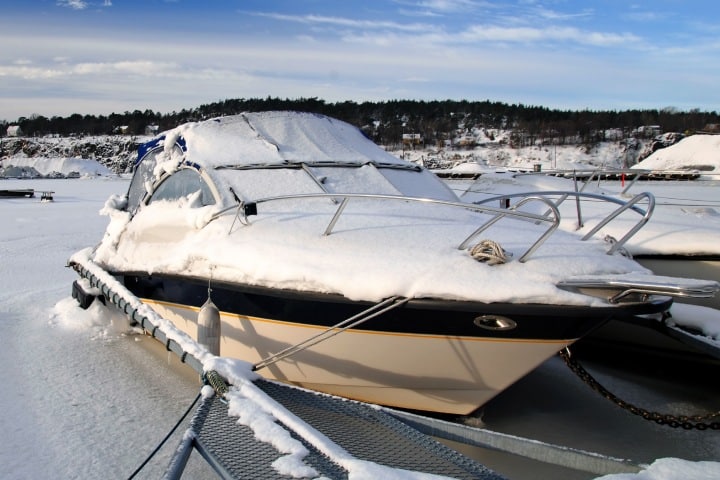
Here are a few general safety tips for when a winter storm is underway:
- Stay informed: Keep an eye on weather forecasts and warnings from official sources. Stay informed about the storm’s timing, intensity, and expected impacts.
- Prepare an emergency kit: Create an emergency kit that includes essential supplies such as non-perishable food, water, blankets, flashlights, batteries, a first aid kit, and any necessary medications.
- Stay indoors: If possible, stay indoors during the storm. Avoid unnecessary travel, as roads may be icy and dangerous.
- Dress appropritely: Wear multiple layers of warm clothing, including a hat, gloves, and a scarf. Avoid cotton clothing, as it loses its insulating properties when wet.
- Heat safely: If using a space heater, keep it at least three feet away from flammable objects, and never leave it unattended. Ensure proper ventilation if using a fireplace or gas heater.
- Be cautious with generators: If using a generator during power outages, place it outdoors in a well-ventilated area to prevent carbon monoxide buildup.
- Keep safe space around heaters: Maintain a three-foot safety zone around heaters, fireplaces, and other heat sources to prevent fires.
- Avoid carbon monoxide poisoning: Do not use grills, camp stoves, or other gasoline or charcoal-burning devices indoors, as they can lead to carbon monoxide poisoning.
Heat waves
Heat waves are prolonged periods of excessively hot and humid weather that can pose significant health risks and strain on infrastructure. These extreme weather events can affect various regions in the United States, but they tend to have a more pronounced impact on the western and southwestern states.
States like Arizona, California, Nevada, Texas, and New Mexico are particularly vulnerable to intense and prolonged heat waves due to their arid and desert-like climates.
During such events, it is crucial for you to take precautionary measures such as:
- Stay hydrated
- Seek shelter in a well ventilated area
- Regularly apply sunscreen while outside
- Dress appropriately
Wildfires
Wildfires are uncontrolled and rapidly spreading fire that occurs in vegetation, such as forests, grasslands, or brush, and can pose a significant threat to natural resources, property, and human lives. These fires are typically fueled by dry vegetation and driven by weather conditions, such as high temperatures, low humidity, and strong winds, which allow them to spread quickly and unpredictably.
In the United States, wildfires are most prevalent in the western states, particularly California, Oregon, Washington, Montana, and Colorado. These regions are susceptible to wildfires due to their arid and semi-arid climates.
One thing to note about wildfires is that they can significantly degrade air quality. Smoke emissions from wildfire can spread over long distances, leading to respiratory issues and reduced visibility in affected regions.
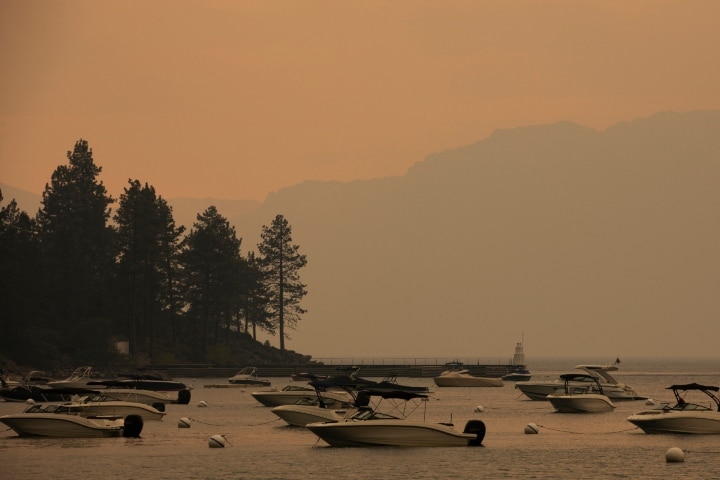
Here are a few general safety tips for when a wildfire affects you:
- Stay informed: Keep yourself updated with the latest information and warnings from local authorities and news sources. Follow evacuation orders if necessary.
- Limit outdoor activities: Avoid going outside, especially when smoke concentrations are higher. If you must be outdoors, wear a mask rated N95 or higher to protect yourself from inhaling harmful particles.
- Keep indoor air clean: Close all windows and doors to keep smoke from entering your home. Use air conditioning with recirculation mode to maintain a cleaner indoor air environment.
- Have an emergency kit: Prepare an emergency kit with essential supplies, including medications, first aid items, food, and water, in case you need to evacuate quickly.
- Monitor air quality index (AQI): Check the AQI regularly to stay informed about the air quality conditions in your area. Apps and websites provide real-time AQI updates.

